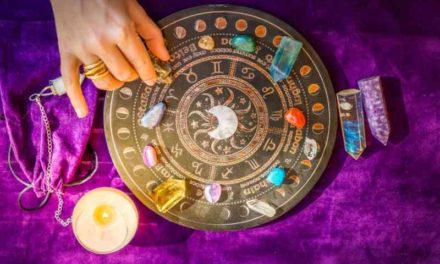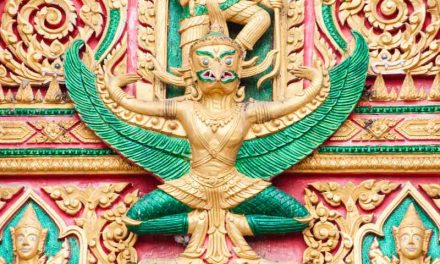Along with a great number of other Vedic teachings, the knowledge of the Nachitekas Yajna is one of the many that was orally transmitted but has since been forgotten. All of the 32 Brahma-Vidyas that are spoken about in the Upanishads, as well as the meditation practices that go along with them, have been forgotten and are no longer taught or performed.
The Katha Upanishad is focused on gaining an understanding of oneself. The tale of Nachiketas and Yama, Lord of Death, is the narrative of innocence in its purest form. Nachiketas had rock-solid confidence in the indisputable fact that he was an innocent person. He did not need any more bravery to face Death and acquire the lessons that would bring him to complete self-realization.
There is a lot we don’t know about dying. Equal to the enigma of guilt is innocence. There is an equal amount of terror associated with remembering our actual identity as there is with the fear of dying. Indeed, both of those things are the same. The Katha Upanishad reveals to us that, in order to understand the nature of the Self, we must first understand the nature of fear itself. This is a precondition for being granted permission to do so.
Through performing the Nachiketas Yagna, you will get the love and respect of all humans, in addition to the love and respect of all animals and other living creatures. It is possible to provide all the wealth and will develop connections that are pleasant. The most important thing to take up from this is that you cannot (in any meaningful sense) carry out the Nachiketa Agni rite without the Bhakti Yoga component.
The Nachiketas yajna is not like other ordinary yajnas; it demands the knowledge, contemplation, and realization of the indwelling nature of the para brahman in both chit and achit. This is because the Nachiketa yajna is defined by its own definition. This tale depicts a dialogue between a little child named Nachiketa and Yama, the Hindu god of death and the afterlife.
The instructor is Yama, sometimes known as “Death Itself,” and the pupil is Nachiketa while he was in his teenage years. There was a well-known figure named Vajasrawas who lived in ancient India. A ritual known as Viswajet Yajna was being carried out by him at the time. In order to successfully complete this Yajna, the performer was required to give up all of his fortunes. It was a special event in its own right.
The space has a lovely ambiance created by the design. There were a lot of rishis there, and they were singing the mantras as they were making their offerings to the holy fire. In those days of antiquity, cows were considered to be important and unique property; as a result, Vajashrava made the decision to give all of his cows to Brahmins as a donation.
Nachiketa was in his teenage years at the time, and he was watching the rite of the sacrifice with a childlike curiosity. When he found out that his father was exclusively giving away old and sick cows, he was taken aback by this revelation. Those cows had already been milking for a significant amount of time and had lost their ability to have calves.
The young man’s heart underwent a significant transformation as a result of the ‘worldly intelligence’ shown by his father. In an effort to persuade his father not to give away old cows, Nachiketa questioned his paternal authority by asking, “O father, to whom have you chosen to give me away?” The goal of the young man was to prevent his father from engaging in such behavior.
Nachiketa insisted that his father answer this “childish” question, despite the fact that at first, his father did not pay any attention to it. When his father became upset, he remarked, “Nachiketa, I surrender you to the God of Death.” He repeated the question three times after the father stated this.
What Vajasrawas stated was not anything he intended to convey. These were the words that he had yelled out in a fit of rage. Nobody wants to be the one responsible for sending their kid off to a place where he will die.
Nachiketa made the decision to carry out the instructions given to him by his father and go to the residence of Yama. Vajasrawas requested that his younger son waits in the chariot. Nachiketa was unyielding in her stance. He informed his father as he was folding his hands that their forefathers never reneged on their promises, and he would want to follow in their footsteps and never break a promise.
It was important to him that his father continue the family custom. Nachiketa was not terrified of passing away since he was aware that everything that exists in this world is just fleeting. He came to the realization that ascending to heaven requires one to walk the road of truth. Although Vajasrawas was in a very melancholy mood, he consented to his doing so since he was a devotee of truth. After saying goodbye, Nachiketa went to the residence of Yama.
When he arrived there, he saw that Yama was not at his residence. The little lad waited outside the entrance of Yama’s home for three days and nights without any sustenance, drink, or opportunity to sleep. Upon his return, Yama was overcome with sorrow to see that Nachiketa had received no greeting from anybody. Yama extended his own greeting to him in a respectful manner. After keeping Nachiketa waiting for three days, Yama rewarded him by bestowing three blessings upon him.
“I desire the wellbeing of my father as my first boon,” Nachiketa stated when asked about the first blessing. Yama graciously gave it to him. The second fortunate event “Sir, I have a burning desire to know how one might go to paradise, where there is no suffering, aging, or passing away.” This second blessing was not asked for by Nachiketa for himself, but rather for the sake of the people. He desired for everyone to get access to this hidden wisdom so that they may be liberated from their afflictions.
Yama was satisfied with Nachiketa’s lack of self-interest in the situation. Yama explained in great detail how one may commit a certain sacrifice that, if successful, would lead one straight to paradise.
Because Nachiketa was a thoughtful and honest young man who had spiritual awareness, he was able to comprehend all that was conveyed to him. Yama was appeased by his performance, and as a token of his gratitude, he named that specific sacrifice after Nachiketa himself.
The third blessing is that…
Nachiketa posed the question, hoping to uncover the secrets of the afterlife. In response to this inquiry, Yama felt hesitant. He said that even the gods had no idea how to solve this problem. He provided Nachiketa with a lot of material riches and requested that Nachiketa begs for another boon.
On the other hand, Nachiketa contended that all earthly wealth and heavenly joys inevitably come to an end at some point. If not the day after, after hundred years. These forms of entertainment are just temporary in nature. He persisted in acquiring the most comprehensive understanding of the Self, saying to the God of Death, “O God of Death, you have promised me the third boon.”
Yama was delighted with the young man’s determination to seek the truth despite the fact that he had chosen the route of virtue rather than the path of happiness. Then Yama imparted upon him the knowledge of the Atman, revealing to him the characteristics of a man who achieves immortality. Learn to recognize your true nature as the king of the chariot, your physical form as the chariot itself, your critical intellect as the charioteer, and your mind as the reins.
Some knowledgeable people believe that the senses are the horses, and that selfish wants are the highways that they traverse. They point out that when the Self is confused with the body, the mind, and the senses, he seems to take pleasure in painful experiences and suffer from unpleasant ones.
The self that is all-knowing was never born, and it will never die. This Self exists beyond the realm of cause and effect, and it is everlasting. Even after the death of the body, the self continues to exist. It is necessary to differentiate the Soul from the body since the body is the location of desire. The Soul is the only thing that survives death; it is true that the Soul is everlasting.
As a result, Nachiketa was able to break free from the endless cycle of births after receiving the knowledge of the Brahman from Yama.





